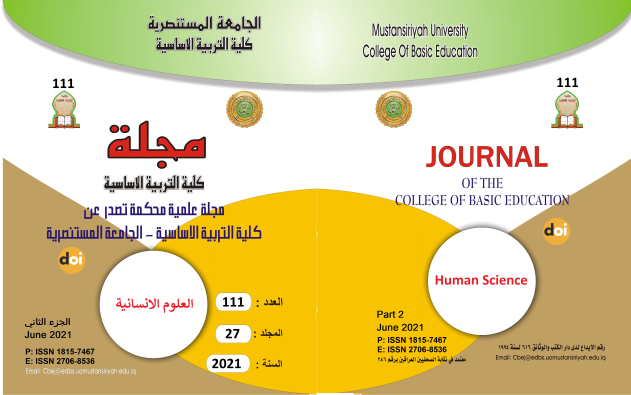Iraqi family in the old and contemporary legislation A comparative social study
Main Article Content
Abstract
The family is asocio _ biological group consisting of spouses and children ,and it is the main pillar for building society and understanding the legal development represented by the by the legislation that was organized by it .we tried to shed light on the most prominent ancient Iraqi legislation and compare it with contemporary legislation such as betrothal ,marriage ,divorce adultery, adoption and inheritance by relying on the comparative approach, the study found:
There was a difference in the rule of the dowry in old and contemporary Iraqi legislation ,and the difference lies in the recovery of money and gifts to the preacher ,doubled in the old legislation on the other hand, contemporary legislation rejects it as it is in the event that one of the betrothed is renounced, The marriage contract between a woman and man is a fundamental pillar of marriage ,and it is found in old and contemporary legislation to guarantee the rights of spouses, It was found that the polygamy system as a type of marriage existed in the past and present, but according to different legal texts all ancient laws permitted polygamy, with the exception of the code of Hammurabi sharia , only monogamy was allowed ,and contemporary Iraqi legislation allowed polygamy because some of its texts were derived from the Islamic law that allows this if the condition of justice is provided , The old Iraqi laws did not specify the age of marriage in tending to marry .while the contemporary old Iraqi laws put it .the age was set at (18) years for the official (marriage) contract and (15) for girl with the consent of the guardian ,taking into account the physical ability. There are similarities between the ancient and contemporary Iraqi laws regarding consent between a man and woman to complete marriage and coercion in contemporary Iraqi leg is lation nullifies marriage.
The old and contemporary Iraqi legislations criminalized the act of adultery , and rulings in it varied because it is an unacceptable it is an unacceptable act socially , morally and religiously. The ancient Iraq laws differed from contemporary laws regarding divorce. difference came in its rulings as to whether the wife , upon her early marriage , was a widow . and between the wife who gives birth to children or who does not give birth .As for the contemporary Iraqi legislation , its texts have differed regarding divorce a according to Islamic law. As well as authorizing the judge to divorce in some cases and in the event that there are justifications that hinder or prevent the continuation of marital life. The old Iraqi legislation did not address the issue of inheritance in any detail except for the sharia of hammurabi. As for contemporary Iraqi legislation ,in heritance was distributed according to what was stipulated in Islamic law.
The old Iraqi legislation differed form the contemporary by dealing with issue of adoption .In the ancient Iraqi laws , texts. Came in the sharia Ashnona and Hammurabi only. We did not find a legal text on adoption in contemporary Iraqi legislation because Islamic does not allow adoption. Therefore, Iraqi adopted a system similar to adoption , known as "annexation" , meaning the orphan's joining a family that wants to raise him but under conditions .
Article Details

This work is licensed under a Creative Commons Attribution-ShareAlike 4.0 International License.
